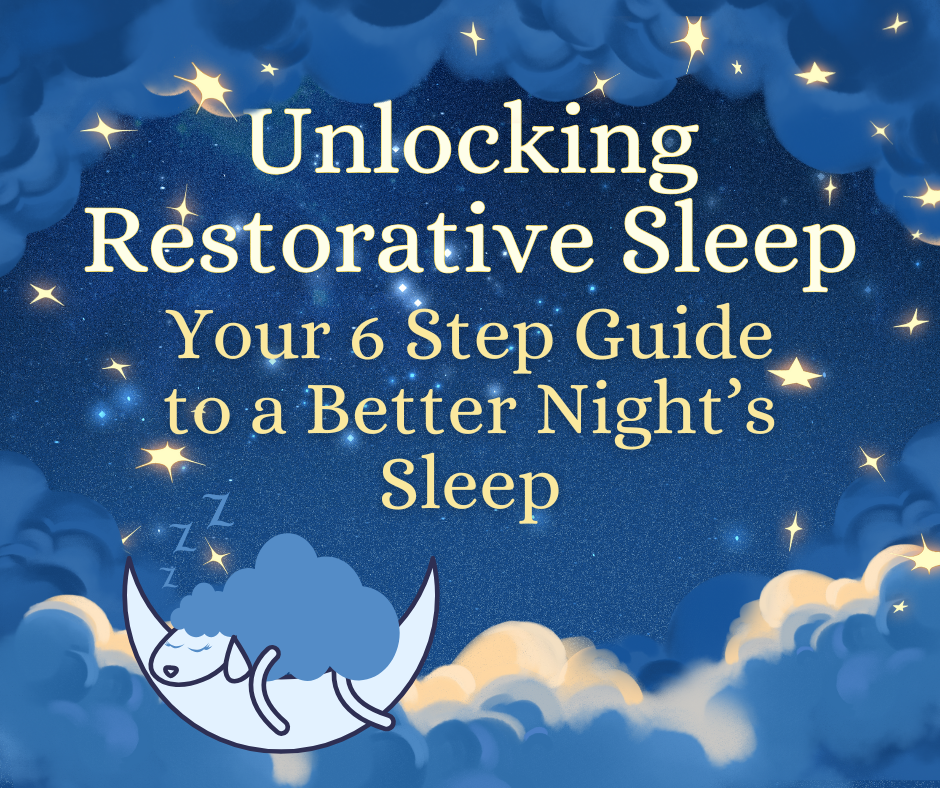Introduction: The Power of Sleep
Sleep is the foundation of overall wellness. It impacts everything from mental clarity and emotional stability to immune function and heart health. Yet, many people struggle to get the deep, restorative sleep they need to thrive. With Sleep Awareness Month upon us, it’s the perfect time to explore ways to enhance sleep quality and break the cycle of stress-induced insomnia.
Understanding the Four Sleep Cycles
A full night’s sleep consists of four sleep stages, each playing a crucial role in recovery and well-being: Stage 1 (Light Sleep): This transitional phase occurs as you drift from wakefulness to sleep. It lasts only a few minutes. Stage 2 (Deeper Light Sleep): Heart rate and breathing slow, and body temperature drops, preparing the body for deep sleep. Stage 3 (Deep Sleep): Also known as slow-wave sleep, this is the most restorative stage, essential for physical recovery, immune function, and memory consolidation. Stage 4 (REM Sleep): The brain becomes highly active, dreaming occurs, and emotional processing takes place. This phase is critical for cognitive function and creativity. To wake up feeling refreshed, it’s essential to cycle through all four sleep stages multiple times each night.
The Domino Effect of Stress on Sleep
Stress is one of the biggest disruptors of sleep. When stress levels rise, cortisol (the stress hormone) remains elevated, making it harder to relax. This can lead to:
- Difficulty falling asleep (racing thoughts, anxiety).
- Frequent night awakening (light, fragmented sleep).
- Reduced deep sleep (lees physical and mental recovery).
- Daytime Exhaustion (leading to increased stress and irritability).
Breaking the Cycle: How to Reduce Stress for Better Sleep
If stress is robbing you of rest, here’s how to regain control:
- Create a wind-down routine: Establish a consistent pre-bedtime ritual to signal to your body that it’s time to relax.
- Limit screen time: The blue light from screens suppresses melatonin, the hormone responsible for sleep. Try disconnecting at least an hour before bed.
- Try mindfulness techniques: Deep breathing, meditation, and progressive muscle relaxation help calm the nervous system.
- Journal before bed: Writing down worries or creating a to-do list for the next day can ease anxiety.
- Exercise regularly: Movement, especially earlier in the day, helps reduce cortisol levels and improves sleep quality.
Your Simple Wind-Down Routine for Better Sleep
Ready to optimize your sleep? Try this simple wind-down routine: 1 Hour Before Bed: Dim the lights and unplug from screens. The blue light from screens suppresses melatonin – the hormone in our bodies responsible for sleep. 30 Minutes Before Bed: Try gentle stretching or progressive muscle relaxation to release stored tension. 10 Minutes Before Bed – Breathe deeply & visualize relaxation to further calm the nervous system.
Final Thoughts: An Ongoing Commitment to Lifelong Stress Management
Prioritizing sleep shouldn’t be considered a luxury – it’s a necessity. I firmly believe that proper hydration and sleep are the two most underutilized healing tools we have at our finger tips. My hope is that by better understanding sleep cycles and how to build a healthy nighttime routine, you can take control of your rest and wake up feeling refreshed, energized, and ready to take on the day.
If you or a loved one could benefit from our Certified Sleep Coaching, reach out to Morpheus Wellness today. Let’s create a pathway to a more confident and fulfilling life, one step at a time.
Contact Us
📞 (813) 586-0542
📍 Serving Tampa, Wesley Chapel, St. Pete, Clearwater, Bradenton, and surrounding areas
